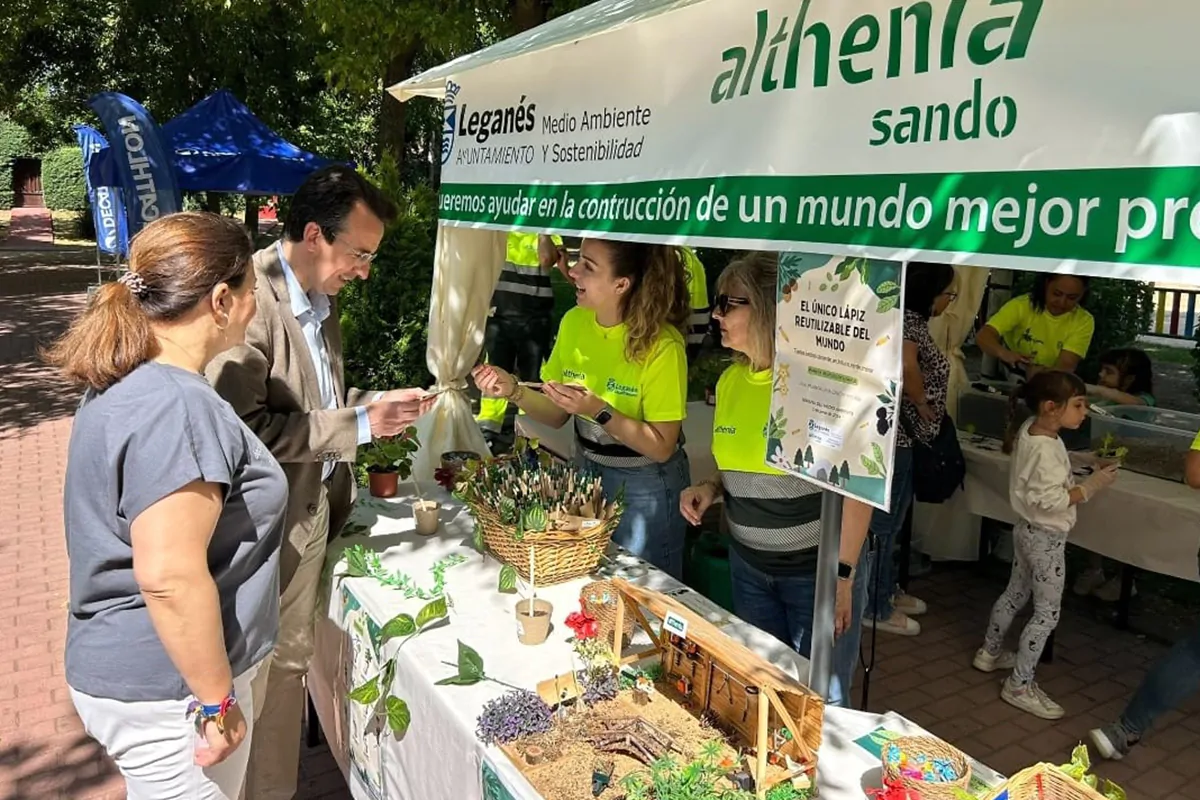
05/06/2024
Althenia Sando is participating in the celebration of World Environment Day again on 5 June. On this occasion, together with the Environmental Department of the Leganés Town Council, it has prepared an information stand in the central Parque de las Moreras in the municipality, where it has presented an innovative initiative to promote environmental culture: pencils recycled as plants.
In total, Althenia Sando has distributed 600 sustainable pencils made from seeds that can be reused and turned into an aubergine, thyme, coriander, strawberry, basil, chia, chrysanthemum, daisy plant…
Together with this initiative, Althenia Sando, a company specialising in sustainable environmental solutions that currently provides services to the municipality of Leganés, participated in an information stand and the organisation of a workshop to plant 300 organic potted vegetable plants for children and adults to take home. Two fun and entertaining initiatives aimed at raising environmental awareness among visitors.
The company also demonstrated its brush-cutting robot. This machinery is currently being used by Althenia Sando in Leganés to clear steep slopes without risk to people.
Leganés Environment Week aims to involve residents in activities to raise awareness of the importance of respecting the natural environment, valuing green spaces and reducing Waste. More than 40 activities are distributed throughout the municipality from 1 to 9 June. For the organisation, it adopts the slogan approved by the FEMP (Spanish Federation of Municipalities and Provinces) “Our lands. Our future. We are the #GenerationRestoration”.
his initiative is part of Sando’s sustainability strategy. It is extended through the various companies that make up Sando in their operations and management in the different territories.
Althenia Sando provides maintenance services for the public green areas of Leganés, covering a total area of 2,640,570 square metres, including the comprehensive conservation of 705,980 square metres of urban parks, 792,542 square metres of public gardens for intensive use, and 1,142,048 square metres of parks and forest areas.
In the execution of the services, it uses specialised techniques and machinery to ensure maximum environmental protection, allowing the ecological balance of the area and favouring its regeneration in an urban environment.
These techniques include alternative phytosanitary treatments to combat pests in parks and gardens, such as endotherapy, and biological pest control with the controlled release of beneficial insects, such as predators and parasitoids, to combat pest-causing insects on the city’s ornamental trees in an environmentally friendly way. Sustainable methods that do not cause atomisation and dispersion of chemicals, thus avoiding contamination of the environment, soil and water.